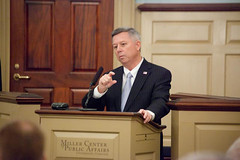 There is an important deadline coming up involving health insurance exchanges. States can either set up their own exchange, or they can have the federal government set one up for them. In Nebraska, state insurance officials have been working on creating a state exchange. One state senator is upset about this situation.
There is an important deadline coming up involving health insurance exchanges. States can either set up their own exchange, or they can have the federal government set one up for them. In Nebraska, state insurance officials have been working on creating a state exchange. One state senator is upset about this situation.
The deadline has been set. Each state has until November 16, 2012, to submit proposals that show how they will operate their state health insurance exchanges. These plans must be approved, in part, or in their entirety, by the federal government.
States who are approved will be able to set up their state health insurance exchanges. States whose plans are not approved, or who refuse to submit a proposal, will have the federal government create an exchange for them.
In Nebraska, state insurance officials have been working on complying with the federal health care law. The Director of the Department of Insurance, Bruce Ramge, told a Nebraska legislative panel that the plans for Nebraska’s health insurance exchange are “on par” with the other states that will create a state-based insurance marketplace. Nebraska has contracted a firm that is based in Chicago, Illinois, to help design the Nebraska health insurance exchange.
One person, Senator Paul Schumacher, a Republican who represents District 22 in Nebraska, is challenging this situation. He opposes the Affordable Care Act. Nebraska Governor Dave Heineman, who is also a Republican, made an executive order that allowed legislators to work on creating an exchange. He did not do this in a special session, and Senator Schumacher is now questioning if Governor Heineman really had the authority to do that.
According to Jen Rae Hein, a spokeswoman for Governor Heineman, the constitution of the state of Nebraska does allow the Governor to submit the blueprints for the state’s exchange to the federal government. There is a provision that allows “supreme executive power” to manage the affairs of the state.
This means that the state of Nebraska will be preparing for the creation of a health insurance exchange. The exchange will not be enacted until after the upcoming Presidential election. In short, this means that the Governor is using the “wait and see” excuse, in the hopes that the person who is elected President will allow Nebraska to opt-out of having an exchange.
However, the state will not be expanding its Medicaid program. Governor Dave Heineman is opposed to the part of the Affordable Care Act that will enable states to receive federal funding to extend their Medicaid programs.
Medicaid is a public health insurance program that covers people who are low-income. Nebraska has about 13% of its population, (around 237,00o people) who are uninsured. Martin Swanson is a health policy advisor who is involved in creating Nebraska’s exchange. He estimates that 28,400 uninsured Nebraskans would qualify for Medicaid coverage if the state expanded its Medicaid program.
Image by Miller_Center on Flickr

